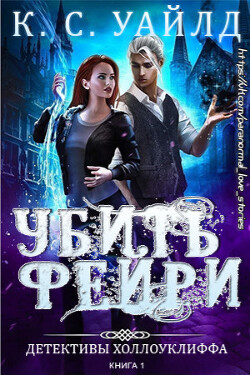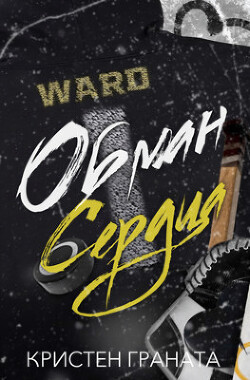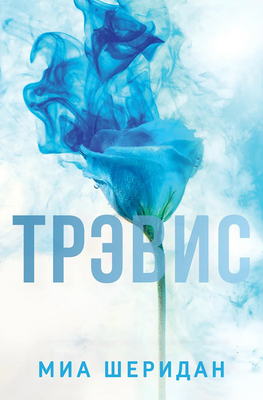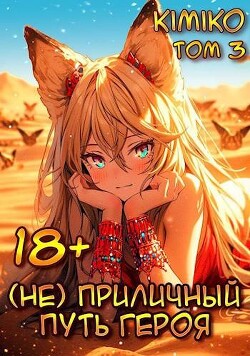Nancy - The Islands of the Blessed
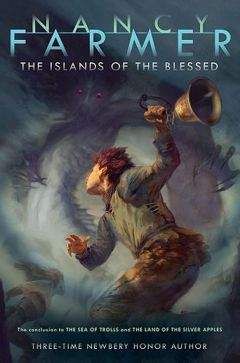
Помощь проекту
The Islands of the Blessed читать книгу онлайн
And yet if Gog and Magog hadn’t come here, Jack mused, who knows what fate might have been theirs? They might have ended up as slaves in a lead mine. At least they had some joy, mooing with the cows and worshipping lightning. What is happiness, after all? He thought of Thorgil, whose hope had been to fall in battle; and of his father, Giles Crookleg, who relished disappointment; and of Father Severus, who enjoyed cold baths and fasting. The elves pursued an endless round of pleasure—much good it did them, doomed as they were to fade at the end of days.
Happiness is a puzzle and no mistake, Jack decided.
The Bard roused him and they set off again. Shreds of mist rose from a hundred rivulets left behind by the storm, and a scarecrow was bent double in a ruined field. “He didn’t protect anything,” Jack commented as they squelched past in the soft earth.
“Odin’s crows take more than a heap of straw to be impressed,” said the Bard.
Jack and the Bard trudged on, observing the devastated barley and oat fields. Half of the sheep were missing, according to the villagers, although most of them would probably turn up. The chickens and cattle had been protected indoors, and Thorgil’s ponies had also survived. The Tanner girls had pulled them into their hovel when they saw black clouds approaching.
It was an amazing feat, considering that there was scarcely enough room for the Tanners inside. The girls had forced the horses to lie down and then lain on top of them with their mother between. It made a stifling crush of horse and human flesh, but all had lived.
“That means we’ve earned the right to ride them,” Ymma, the older Tanner girl, declared when Jack and the Bard stopped by to check on their welfare.
“You’ll have to discuss that with Thorgil,” the old man said.
“Pooh! She thinks she owns everything. Who’s her father, I ask you?” the girl said rudely. “Where’s her family?”
“Everyone says she acts like a Northman,” added her younger sister, Ythla.
The Bard turned on them so suddenly, the girls shrank away and their mother grabbed their arms. “What do you mean, talking back to the Bard?” Mrs. Tanner cried. “Go down on your knees at once and beg his pardon. Honestly, sir, I don’t know what’s become of them since their father died.” She pushed the girls down and they apologized loudly.
Jack wasn’t surprised. One look at the old man’s face and you understood why he was known as Dragon Tongue and why even Northman kings were afraid of him. But the girls had only said what everyone else was probably whispering.
They found Mother sitting by the beehives. Only two colonies had survived. The rest were dying of cold and wet, the bees creeping over the ground or struggling weakly in the mud. Mother had built a fire nearby—not too close, for smoke could harm them as well—and had laid out chunks of bread covered with honey. The insects clustered eagerly around the food.
“They’re the last of a royal line,” she said sadly, “brought here by the Romans. The women of my family have guarded them since time out of mind. No Saxon bee matches them for strength and industry, but they will be lucky to live through this winter.”
The Bard played his harp and Mother sang, using the small magic that calmed nervous animals. Her voice was not unlike a drowsy bee-hum itself. She told them of sunny days to come, of new flowers and warm breezes.
“How’s your supply of candles?” the Bard asked when he had handed the harp back to Jack.
“I know what’s in your mind,” she replied. “The crops are ruined, and if we are to survive this winter, we must barter for grain. Whatever I have is yours.”
“I can always count on you, Alditha,” said the old man warmly, clasping her hands.
From there the Bard and Jack made their way to the hazel wood that lay in the shadow of the oak forest. This woodland, though littered with debris, had been spared. A tangle of branches and gnarled roots was crossed by odd little paths carpeted with bluebells. You might meet anything in the hazel wood—long-eared hares, badgers, a wolf folding itself into the twilight, or even a bear. It was a secret, knowing place, and you didn’t enter it carelessly after dark. The leaves now shone with an eerie brightness, and the air was fresh and delightful.
“It’s as though the storm never happened,” Jack said with wonder.
“Hazel woods are protected,” said the Bard. “At the School of Bards—where I was an outstanding student, by the way—a newcomer was left in a hazel wood overnight. In the morning the teachers asked him what he’d seen. You have no idea how some of those lads twisted themselves into knots, trying to say what they thought the old bards wanted. If the boys lied, they were sent away and never allowed to return.”
“Just for that,” murmured Jack, thinking of the times he had lied to avoid a thrashing from Father.
“Serving the life force is a serious business,” the old man said.
“What did you see, sir?” Jack said daringly, for the Bard rarely answered questions about himself.
The old man pushed aside a downed branch with the tip of his staff. “Right now I see ceps.” A cluster of fat mushrooms with white stems and brown caps crowded around the foot of a tree. “We’re in luck, lad. They’ll make an outstanding supper.”
Jack crouched down to gather the ceps, and their rich, earthy odor made his mouth water.
“Hazel woods are brimming with the life force,” the Bard continued, moving more branches out of the way. “They lie close to the boundaries between the nine worlds, and many a secret pathway lies hidden under their leaves. A true bard knows how to find them.”
Jack felt a tremor of fear, which he quickly tried to suppress. His experience with other worlds had mostly been bad. On the other hand, there were moments—such as when he and Thorgil had found the Valley of Yggdrassil—so wreathed in glory that tears came to his eyes when he remembered them. And then an awful thought struck him: Suppose the Bard were testing him right now? Perhaps it was time to discover whether he was a true bard or whether he should be sent back to weeding turnips and chasing black-faced sheep.
Jack looked around, willing the leaves to dissolve and show him a secret path. But nothing appeared. It was an ordinary woodland full of moss and lichens. The trees nearest the fields had been coppiced, cut close to the roots to allow for the growth of straight branches that might be used for fences. A red squirrel scolded him from a high perch, and he saw it flick its tail with rage.
“What do you see?” the Bard asked in a soft voice.
Jack’s throat constricted. Sunlight hovered over the sheltering leaves. A thrush opened its beak and sang. A spiderweb shivered delicately in a puff of air. “I see… oh, curse it! I don’t see anything. No, that’s not right. I can see a squirrel, a beetle, a thrush, a spiderweb, but nothing important. I’ll never be a true bard!”
“And what could be more important than a squirrel, a beetle, a thrush, and a spiderweb?” insisted the old man.
“Why…” Jack looked up.
“Exactly. Ever since I took you on as my apprentice, I’ve been training you to see things as they are. Until you do that, you haven’t a hope of looking farther. One night very soon, I want you to sleep here.”
Jack swallowed nervously. The woodland appeared tranquil and safe by daylight, but he knew things could change after dark.
“You asked me what I saw when I was tested at the School of Bards,” the old man said. “The first time I encountered the same sort of creatures as you—a hedgehog, a bat, a doe with her fawn. But the second time—” He fell silent.
What happened the second night? Jack thought wildly. The Bard walked on briskly, and the boy knew he wouldn’t answer any more questions.
They followed one of the paths through the hazel wood.
Bluebells brushed against their ankles, and the sound of water rushing through an unseen brook came to them.
“Look there,” commanded the Bard. Jack’s breath caught in his throat. Where once there had been a dense mass of ancient oaks, a road had been torn out, as though someone had taken a giant sword and slashed right and left through the heart of the forest.
“Typical of Olaf and his thick-skulled bunch to leave a mess,” remarked the Bard, looking out over the destruction.
“Was Thorgil right?” Jack asked. “Did Odin really lead a Wild Hunt here?”
“Something laid waste to these oaks.”
The new road was littered with branches, and water pooled in the center where the ground had been plowed deeper. “If it was a Hunt,” Jack said carefully, “what was it hunting?”
“Not Gog and Magog, poor lads. They were merely unlucky to be in its path,” said the Bard. “The Wild Hunt drives misfortune before it. Plague, famine, and war follow behind. I believe we’re in for an interesting time.”
The sky was bright blue, as though nothing had ever disturbed it, and the air was warm with summer. Jack saw Brother Aiden picking his way through the branches like a small brown sparrow hopping from perch to perch. The monk held aloft a wooden cross and was chanting in Latin. Jack couldn’t understand him, but it was clear that the words were filled with Christian magic.
“Aiden, my friend,” called the Bard, “you’ll be up to your ears in mud if you don’t watch out.”
The little monk looked up and almost slid off a branch. “I must sanctify this place,” he said, bracing his feet. “Evil has been done here.”
“Aye, and evil has been done to the farms as well. We must trade for grain before winter comes.” The Bard strode onto the road—for an old man his step was amazingly sure—and helped Brother Aiden to firmer ground.
“I can mix ink. People always want to buy that,” offered the monk. Brother Aiden was renowned for his magnificent colors, which were used to illuminate holy manuscripts.
“Excellent! I’ll get Pega to help you. Jack and Thorgil can gather herbs for my elixirs. John the Fletcher has a stock of deerskins, and I’m sure I can pry a few coins out of the chief’s wealth-hoard. My stars! That new road is so straight, you could almost believe it was made by Romans.”
Jack looked through the opening to a distant meadow and the hills beyond. A lone bird fluttered from one side to the other of this opening. Its cries reached him from the shadows of a yew. “It sounds… so sad,” he murmured.
The Bard cast a sharp look at him. “Indeed. It is mourning the loss of its young. Have you been taking lessons in Bird from Thorgil?”
Jack grimaced ruefully. “No, sir. The last thing Thorgil wants is to admit she understands it.”
“Insufferable child. She’s made a career of pigheadedness. Stay and help Aiden, lad. I’ll expect you for dinner.” The old man collected the harp and the basket of mushrooms and strode away, leaving Jack uncertain of what he was supposed to do next.
“I’d like it very much if you would sing for me,” Brother Aiden said shyly. “My heart is heavy over the loss of those poor men.” The little monk’s eyes were filled with tears, and Jack knew he was remembering his own escape from the Forest Lord or Satan or whoever led the pack of hunters.


![Майн Вэльт - girls, girls, girls... [СИ]](/uploads/posts/books/19776/19776.jpg)





